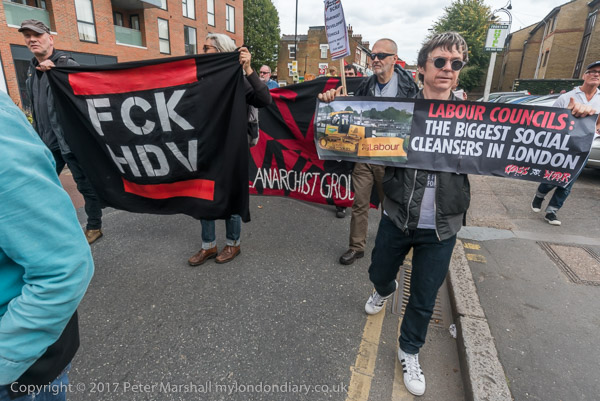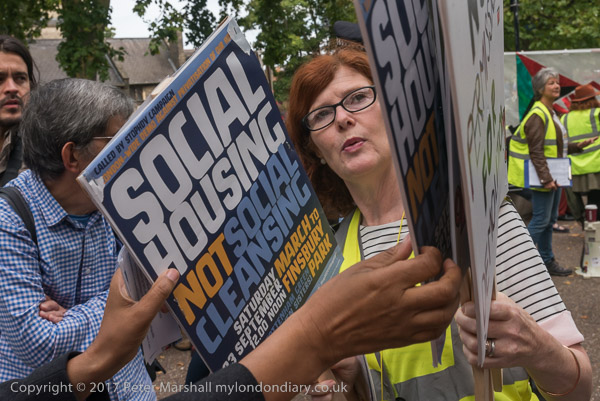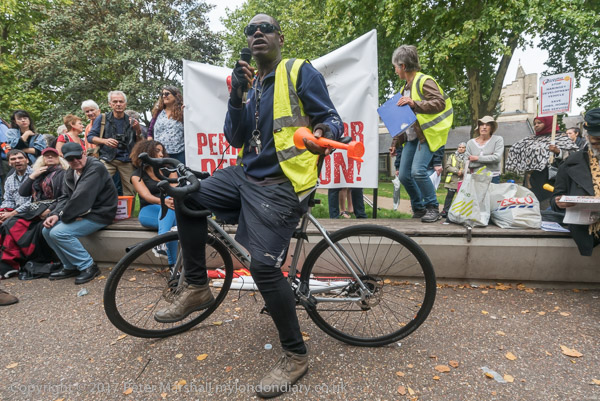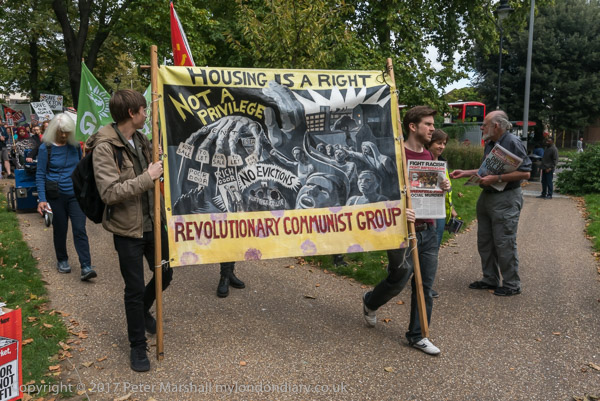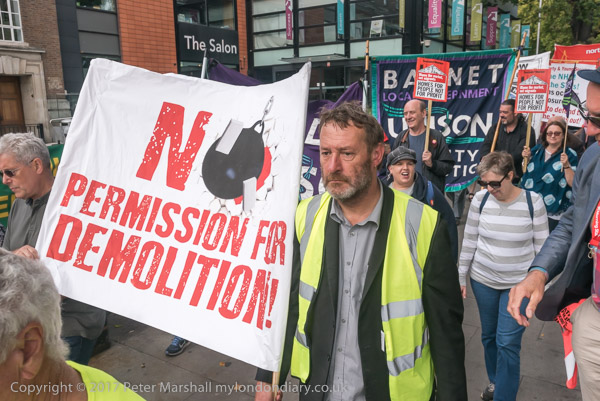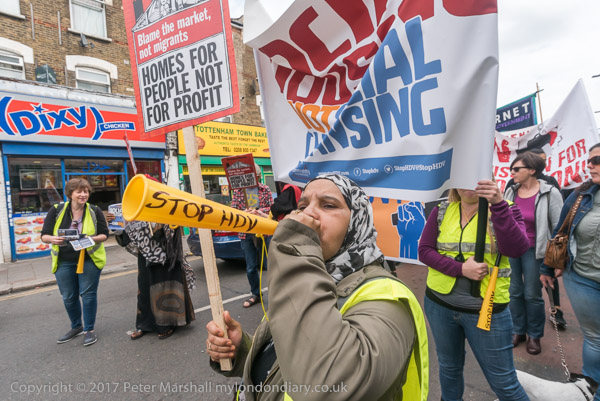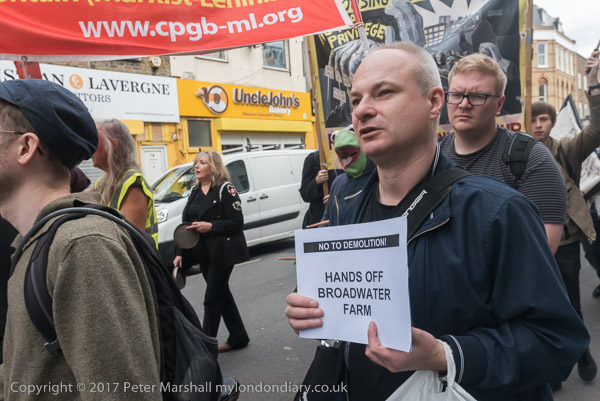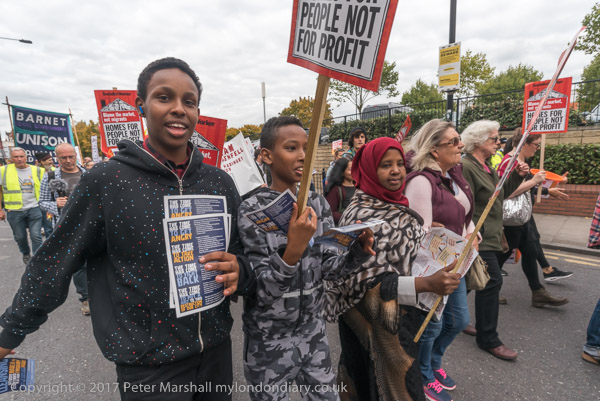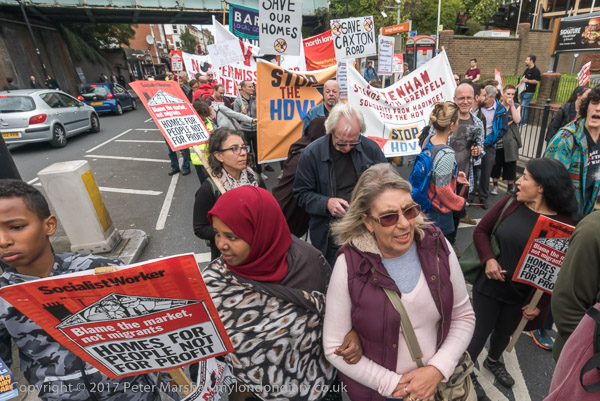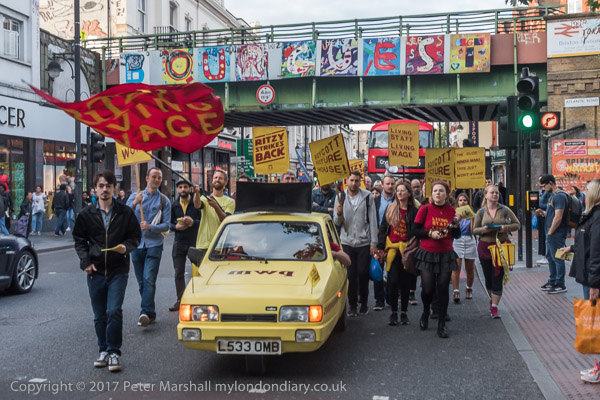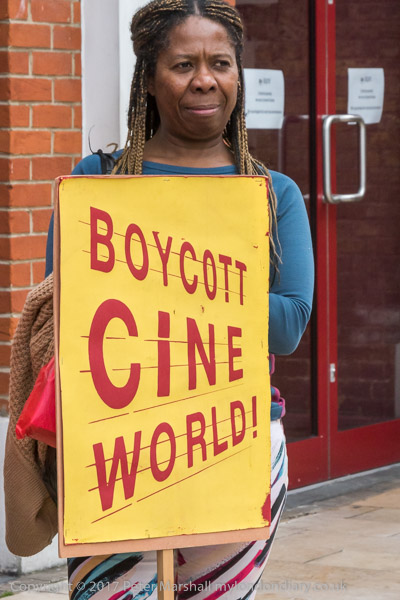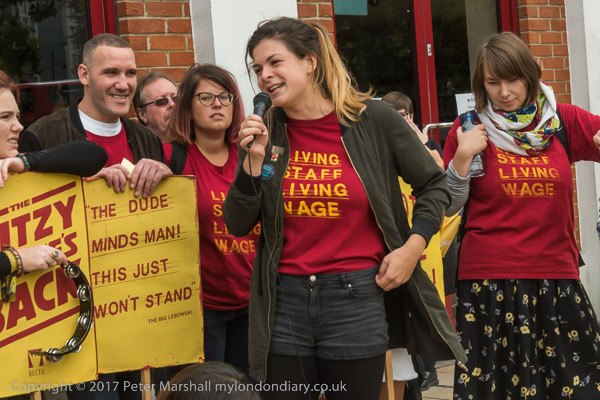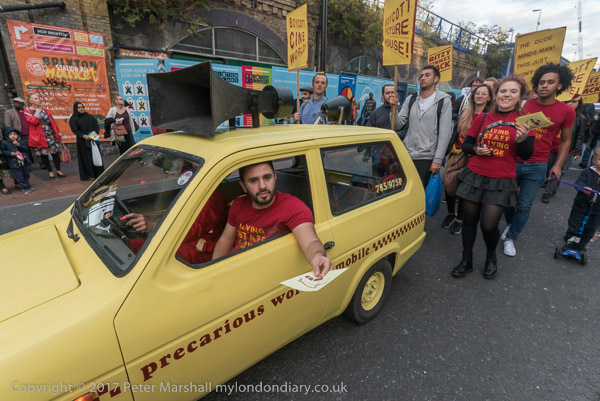Rev Paul Nicholson & More: Many of us particularly in London have fond memories of the Rev Paul Nicolson (1932-2020), a redoubtable campaigner for the poorer members of our community. He appears somehow to have passed Wikipedia by but you can read more about his life from many online sources. On Saturday 29th March 2014 I photographed the Thousand Mothers March in Tottenham he and Taxpayers Against Poverty organised demanding demanding living incomes, decent truly affordable homes for all and rejecting the bedroom tax, the housing benefit cap, unfair taxes, hunger and cold homes.
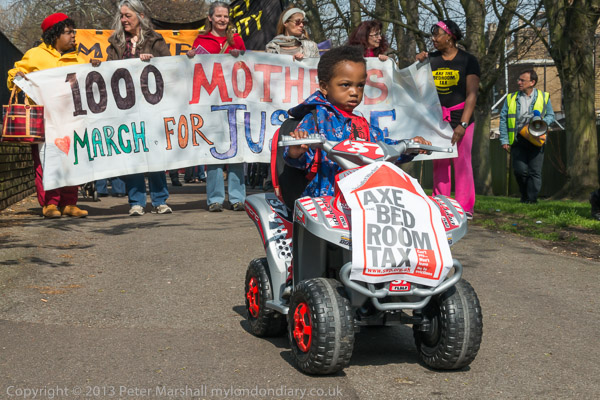
Huff Post tells us Nicolson worked in the champagne trade from 1965 until he made a dramatic career change in 1967 and was ordained by the Church of England as a Minster in Secular Employment. This meant he had to find a job in the real world and he got a job at the ICI HQ in Millbank as a personnel officer. In 1975 he took one of the first Employment Trununals challenging ICIs redundancy procedures and was later involved in supporting other trade unionists elsewhere. In 1979 he ventured into politics becoming an Independent councillor where he then lived in North Herts.
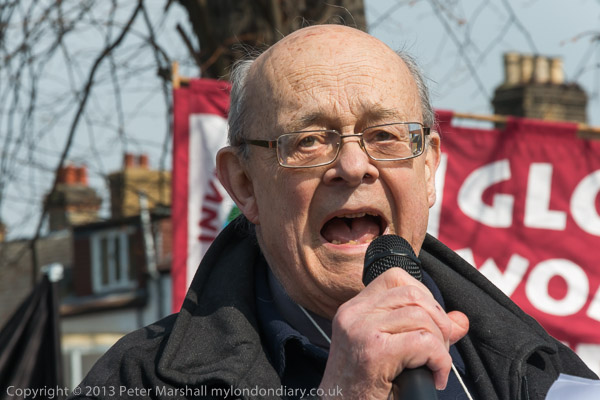
After a long fight against the Poll Tax in 1997 he founded the charity Zacchaeus 2000 Trust (Z2K), based in London, a group who were were deeply concerned about the impact of the Thatcher Government’s ‘poll tax’ – a fixed payment from every adult, regardless of their income or circumstances. Z2K became a registerd charity in 2005 and Nicolson left it in 2012 withdrawing to found Taxpayers Against Poverty (TAP) to avoid the restrictions on political campaigning by charities.
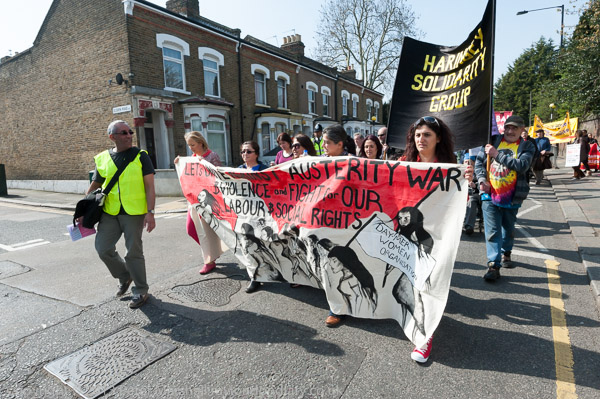
Perhaps his most important action was to commission Minimum Income Standards research from the Family Budget Unity in 1999, which formed the basis of the London Living Wage, with Mayor Ken Livingstone setting up the Greater London Authority Living Wage Unit in 2005.
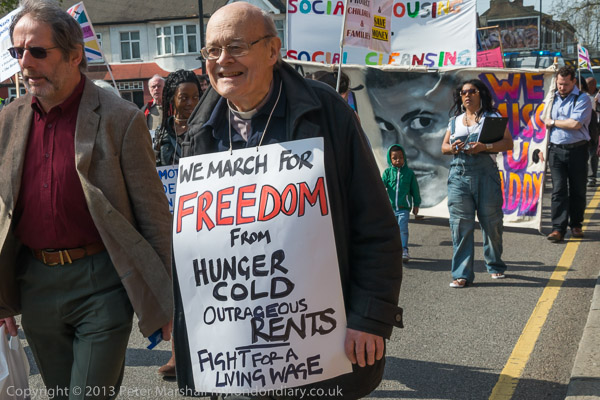
What would have been an ever greater achievement would have been the adoption by the authorities of the Memorandum to the Prime Minister on Unaffordable Housing he commissioned by Professor Peter Ambrose in 2005. New Labour read it but did nothing, continuing to concentrate on unaffordable housing. Had Corbyn been allowed to win by the Labour Party in 2017 we would have seen changes in the right direction – but policies like there were why thy fought hard to prevent his election.
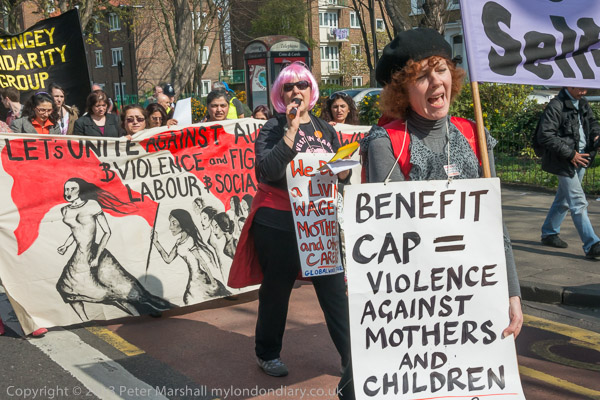
Of course I’ve not mentioned the best-known fact about Nicolson. It was while he was living in Turville near High Wycombe that he allowed the BBC to take over his church to film The Vicar of Dibley. Dawn French was playing Grealdine Grainger as the Vicar, but the real vicar was Paul Nicolson, though I think he kept away from the cameras.
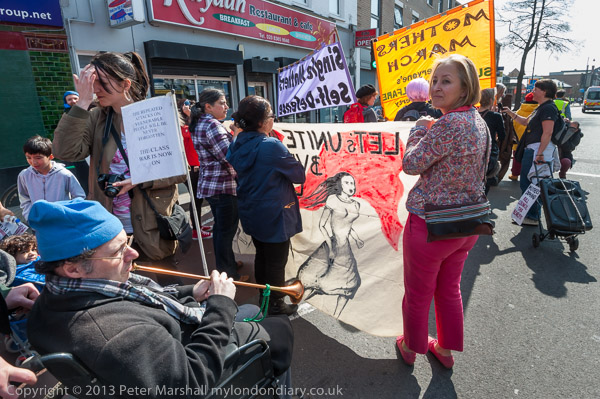
He retired and settle in Tottenham, becoming welll known for his campaigning in the area – and for a number of arrests and trials. He had called this march and its demands were neatly summarise on the placard hanging from a string around his neck: ‘We march for Freedom from Hunger, Cold, Outrageous Rents – Fight for a Living Wage’.
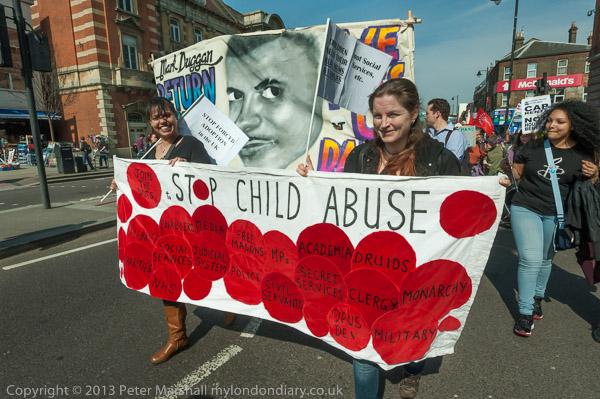
You can read a short article on him in the Guardian which contains around 30 of his letters which were published by the newspaper as well as links to many more. He truly was a great campaigner.
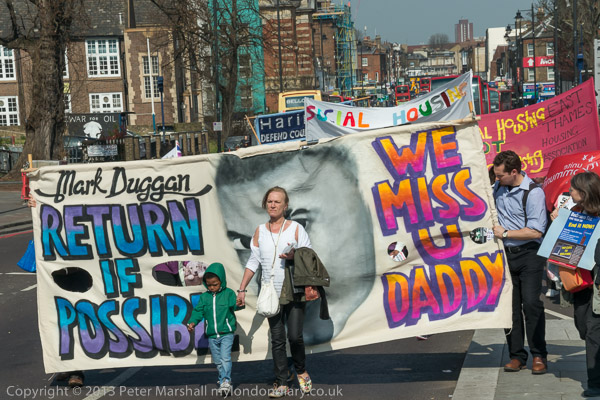
I left the march as it passed Tottenham Police Station with Carole Duggan walking in front of a large banner with the face of Mark Duggan, her nephew, murdered by police in Tottenham in 2011.
More about the march and many more pictures at Mothers march for justice.
I was on my way to two further protests that day which you can read about on My London Diary:
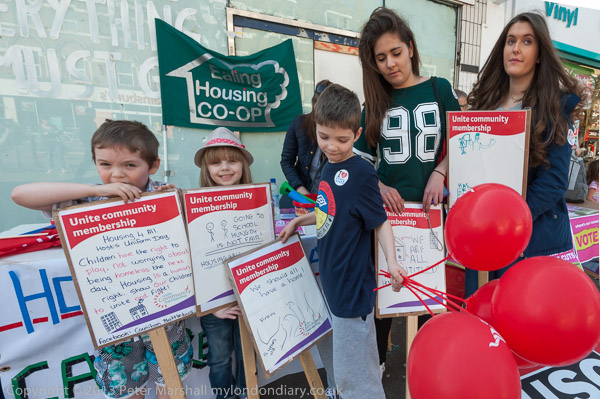
At Kilburn Square was a Kilburn Uniform Day protest where the Counihan Battlebus Housing For All campaign, along with the TUSC Against Cuts and TUSC were calling for rents to be capped and for everyone to have a home.
And in Parliament Square, staff and students from Oasis Academy Hadley in Ponders End were protesting against the Home Office plans to deport fellow A-Level Student Yashika Bageerathi to Mauritius.
She came here with her mother and two younger siblings in 2012 after physical abuse from a relative and claimed asylum in 2012. The application has been rejected and the whole family are under threat of deportation.
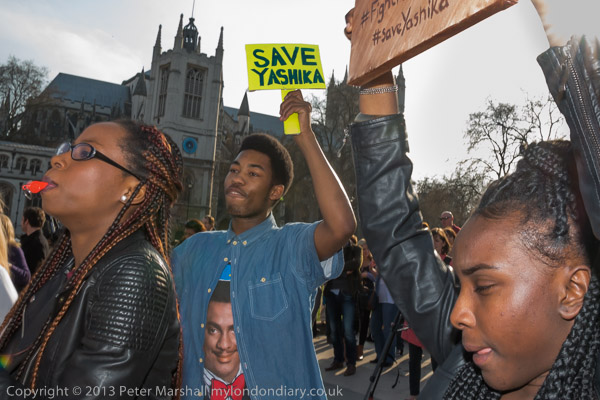
Yashika is now 19 and the Home Office decided they could deport her on her own and she had been in Yarl’s Wood immigration removal centre since March 19th. She and her fellow students want her to be allowed to stay – at least until she has taken her exams this summer. The #FightForYashica petition had attracted over 171,000 signatures.
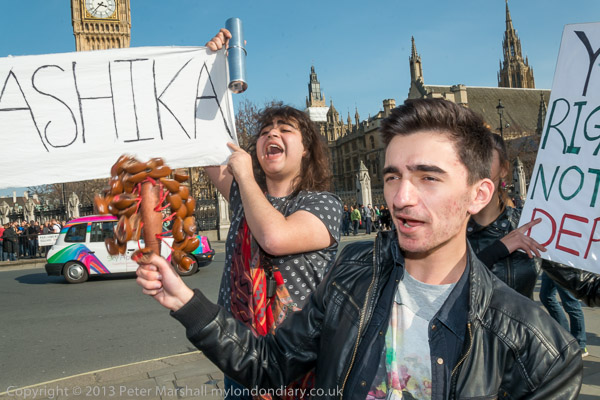
Attempts by the Home Office to deport Yashika failed before this protest when pressure from campaigners led to British Airways refusing to take here. Ahe had been booked into an Air mAURITIUS flight for the day following this protest, but an avalanche of tweets led to them refusing to take her.
Finally she was deported on her own in April 2014 and fortunately was helped there to take her A-levels, receiving the grades she needed to go on to university and end her brief period in the public eye.
Fellow Students Fight for Yashika.
Flickr – Facebook – My London Diary – Hull Photos – Lea Valley – Paris
London’s Industrial Heritage – London Photos
All photographs on this page are copyright © Peter Marshall.
Contact me to buy prints or licence to reproduce.
